 Your new post is loading...
 Your new post is loading...
" I’m very excited to say that my new book, “Reinventing Discovery: The New Era of Networked Science”, has just been released!
The book is about networked science: the use of online tools to transform the way science is done. In the book I make the case that networked science has the potential to dramatically speed up the rate of scientific discovery, not just in one field, but across all of science. Furthermore, it won’t just speed up discovery, but will actually amplify our collective intelligence, expanding the range of scientific problems which can be attacked at all."
Do-It-Yourself scientists working in hackerspaces are positioned to make significant contributions with low overhead and little formal training (becoming necessary and valuable apprenticeship sites as the current higher education system...
""Insight Maker is a Free web based modeling and simulation environment developed by Scott Fortmann-Roe. Insight Maker was first released in February 2010 and has continued to develop since then There are questions which arise during the development of a Systemic Strategy that simply can not be answered with qualitative models. At times only a dynamic quantitative simulation is capable of providing the level of understanding necessary to answer some questions. This Systems Thinking World Learning Thread provides an in depth introduction to modeling & simulation using Insight Maker, a free, web-based, multi-user modeling & simulation environment."
Virtually all talk of cognitive enhancement focuses exclusively on the enhancement of individual intelligence. But what about enhancing group intelligence?
In a production economy, value creation depends on land, labor and capital. In a knowledge economy, value creation depends mainly on the ideas and innovations to be found in people’s heads. Those ideas cannot be forcibly extracted. All one can do is mobilize collective intelligence and knowledge. If knowing how to produce and sell has become a basic necessity, it no longer constitutes a sufficiently differentiating factor in international competition. In the past, enterprises were industrial and commercial; in the future, they will increasingly have to be intelligent.
" GitHub allows a form of collaboration without collaborating. If Facebook and Twitter are social networks based upon mutual or asymmetrical relationships between users (“those you went to school with” and “those you wish you went to school with” as the two networks are occasionally described), then GitHub is a social network which allows the creation of relationships between texts through a process of replication. While users on GitHub can “follow” each other, as you would on Twitter, you can “star” projects that you interested in or “watch” their progress over time. Any public repository can also be very easily “cloned,” which downloads the project to your computer, complete with the hidden “.git” directory that contains its full history."
" But his new effort, a five-person outfit called Smart Patients, actually does look like something that could actually change the way patients, doctors, and industry interact. Its web site, envisioned as a kind of combination of clinical trials search engine and message board community, might further empower cancer patients whose relationship with their disease has already been changed fundamentally by the Internet. ... that takes advantage of the untapped knowledge that exists in a network of cancer patients and caregivers both so they can better help each other and so the healthcare system around them can learn from them. The two goals of the company are to help patients and caregivers to learn even more even faster, and to innovate the ways the healthcare system can learn from them.”
The intelligence community turns to big data to predict social unrest, election results, and currency collapse
Recently I've had some inquiries about the best tool to use for a group to collaborate and share articles, videos, images, documents, etc. My initial thought was a wiki, but now that I've fully inv...
Scientists are using video games to tap the collective intelligence of people around the world, while doctors and educators are turning to games to treat and teach.
I've been collecting URLs related to "Sharing Economy" for nearly ten years at http://delicious.com/hrheingold/sharing_economy -- and now we're seeing it kick into high gear. Technology lowers barriers to collective action (smart mobs) and also lowers barriers to sharing (sharing economy). -- Howard "As the sharing economy picks up momentum, its reach has become global. In cities and towns around the world, people are creating ways to share everything from baby clothes to boats, hardware to vacation homes. There are also groups emerging that consciously identify with the big-picture sharing movement. These groups focus on education, action and community-building, and advocate for a cultural shift toward widespread sharing. From neighborhood-level cooperatives to global organizations, these groups work to bring sharing into the mainstream. They see sharing as a new paradigm; a means to a more democratic society, and they understand that sharing is not a new fad but an ancient practice that technology is reinvigorating."
So much work on augmented intelligence is about the technology. This approach appears to combine the social and technological aspects -- truly augmented collective intelligence. -- Howard "Computer scientists are looking to improve on the performance of artificially intelligent personal assistants by devising a way to use the power of a human crowd to chat you instead. The system, known as Chorus, was designed by researchers at the University of Rochester to allow a number of users to act as a single agent that converses with a single end user in real time. Chorus was made to try and deal with a couple of problems - the limited knowledge base of a single human user, and the often stilted conversational ability of AI that can leave you feeling like you would be better off talking to your dog. The use of a multitude of human users means that everyone can suggest answers, providing a large pool of possible responses, with the crowd voting to reach a consensus about the best way to proceed."
Augmentation always requires the individual human brain, the technological extension and the methods, language, and training that support use of the technology, and social communication among populations of individuals. In this extended e-book, I try to situate augmentation in the historical progression of human biological and cultural evolution and project a vision of where it might go in the future. -- Howard "Mind Amplifier: Can Our Digital Tools Make Us Smarter? examines the origins of digital mind-extending tools, and lays out the foundations for their future. In it, Rheingold proposes an applied, interdisciplinary science of mind amplification. He also unveils a new protocol for developing techno-cognitive-social technologies that embrace empathy, mindfulness, and compassion — elements lacking from existing digital mind-tools."
|
Strategies for systematic knowledge creation through organizations and networks.
Spundge makes it easy to track the best information, distill knowledge, form compelling ideas, and create influential content. They have both a free version and a professional version of their platform.
Digital data stem from our own personal and social cognitive processes and thus express them in one way or another. But we still don’t have any scientific tools to make sense of the data flows produced by online creative conversations at the scale of the digital medium as a whole.
Via Ucka Ludovic Ilolo
The model of distributed calculations, where a problem is broken down into distinct parts that can be solved individually on a computer and then recombined, has been around for decades. But when Google developed the MapReduce algorithm, it added a distinct wrinkle to this method of distributed computing and opened new doors for commercial and scientific endeavors.
Read more at: http://phys.org/news/2013-05-hip-hip-hadoop-science.html#jCphttp://phys.org/news/2013-05-hip-hip-hadoop-science.html
Can you use more useful information in your business and don't know where to find it. Then read this IBM white paper to see how using your staff can use the pow
The truth is that if Reddit is actually interested in using the power of its crowd to help the authorities, it needs to dramatically rethink its approach.
PageRank is a link analysis algorithm, named after Larry Page[1] and used by the Google web search engine, that assigns a numerical weighting to each element of a hyperlinked set of documents, such as the World Wide Web, with the purpose of "measuring" its relative importance within the set. The algorithm may be applied to any collection of entities with reciprocal quotations and references. The numerical weight that it assigns to any given element E is referred to as the PageRank of E and denoted by 
The name "PageRank" is a trademark of Google, and the PageRank process has been patented (U.S. Patent 6,285,999). However, the patent is assigned to Stanford University and not to Google. Google has exclusive license rights on the patent from Stanford University. The university received 1.8 million shares of Google in exchange for use of the patent; the shares were sold in 2005 for $336 million.[2][3]
The value of incoming links is colloquially referred to as "Google juice", "link juice" or "Pagerank juice".[citation needed]
Connections 4.5 will become available in March. At the top of its enhancements list are document management capabilities that allow networked members to access, analyze, and act on data. It will also have a content manager feature so teams and communities can build "collective intelligence" that was either unachievable in the past or possible only under lengthy time constraints. It helps if you think of this in terms of the Pony Express versus the telegraph. The anticipated upside, as IBM is eager to point out, will be much quicker business problem solving, increased productivity, and--you'll be happy to hear this--rising profits.
In the online conversation, Professor Malone addresses a very important question that comes up when first considering a brand new concept like collective intelligence. “Why are we doing all this work?” “There are at least three answers. The first is, as scientists, we want to understand how the world works, and in particular, how the world of groups of people and computers work together. How human societies and human networks work. Second, we want to help businesses, governments and other kinds of organizations know how to work better themselves. How can we create more intelligent organizations, more intelligent businesses, more intelligent governments, more intelligent societies?” “Third, in a way, we are trying to understand how our whole world and society is evolving in a way that I think is making us more collectively intelligent. You could say that the Internet is one way of greatly accelerating the connections among different people and computers on our planet. As all the people and computers on our planet get more and more closely connected, it's becoming increasingly useful to think of all the people and computers on the planet as a kind of global brain.” “Our future as a species may depend on our ability to use our global collective intelligence to make choices that are not just smart, but also wise.”
This article is part of a series: ‘Governance and other systems of mass collaboration’. Stigmergy is a mechanism of indirect coordination between agents or actions. The principle is tha...
Tom Malone's MIT Center for Collective Intelligence is emerging as the single most active researchsite for studying augmented collective intelligence. -- Howard "If we want to predict what's going to happen, especially if we want to be able to take advantage of what's going to happen, we need to understand those possibilities at a much deeper level than we do so far. That's really our goal in the MIT Center for Collective Intelligence, which I direct. In fact, one way we frame our core research question there is: How can people and computers be connected so that—collectively—they act more intelligently than any person, group or computer has ever done before? If you take that question seriously, the answers you get are often very different from the kinds of organizations and groups we know today."
I haven't tried this yet. -- Howard "A mural is a flexible content format that aggregates media and files, ideal for group ideation and visual sharing."
|



 Your new post is loading...
Your new post is loading...

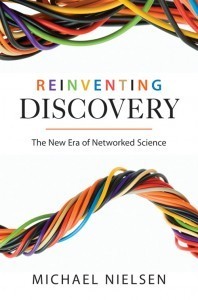


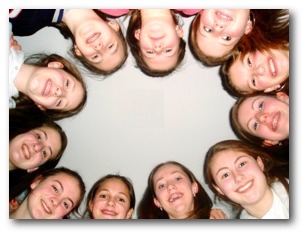









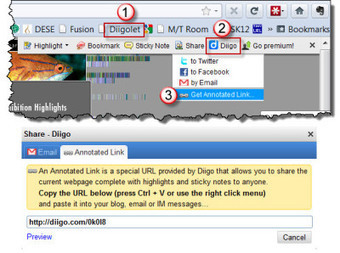






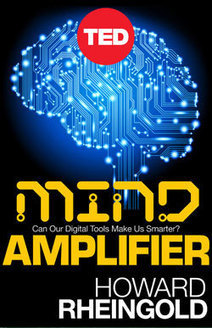


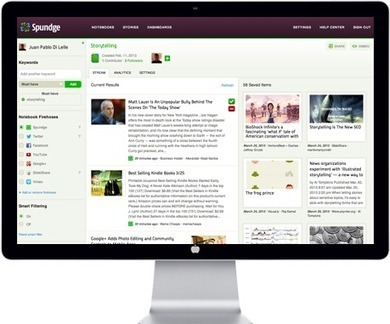












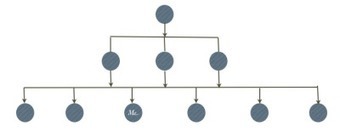









Timely! My copy had just found its way to the top of my book pile to mention in my dissertation on transdisciplinarity. Imagine the FoldIT game where the whole family can play and be entertained while engaging in valuable citizen science and collective intelligence. Calling all leaders who can wield such superpowers.
Highly recommended by two people who I respect.